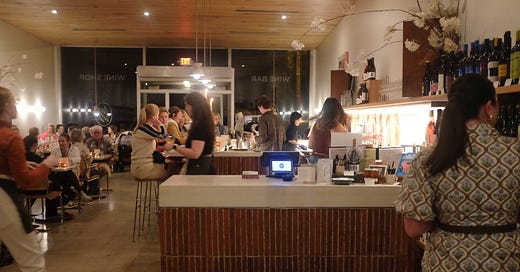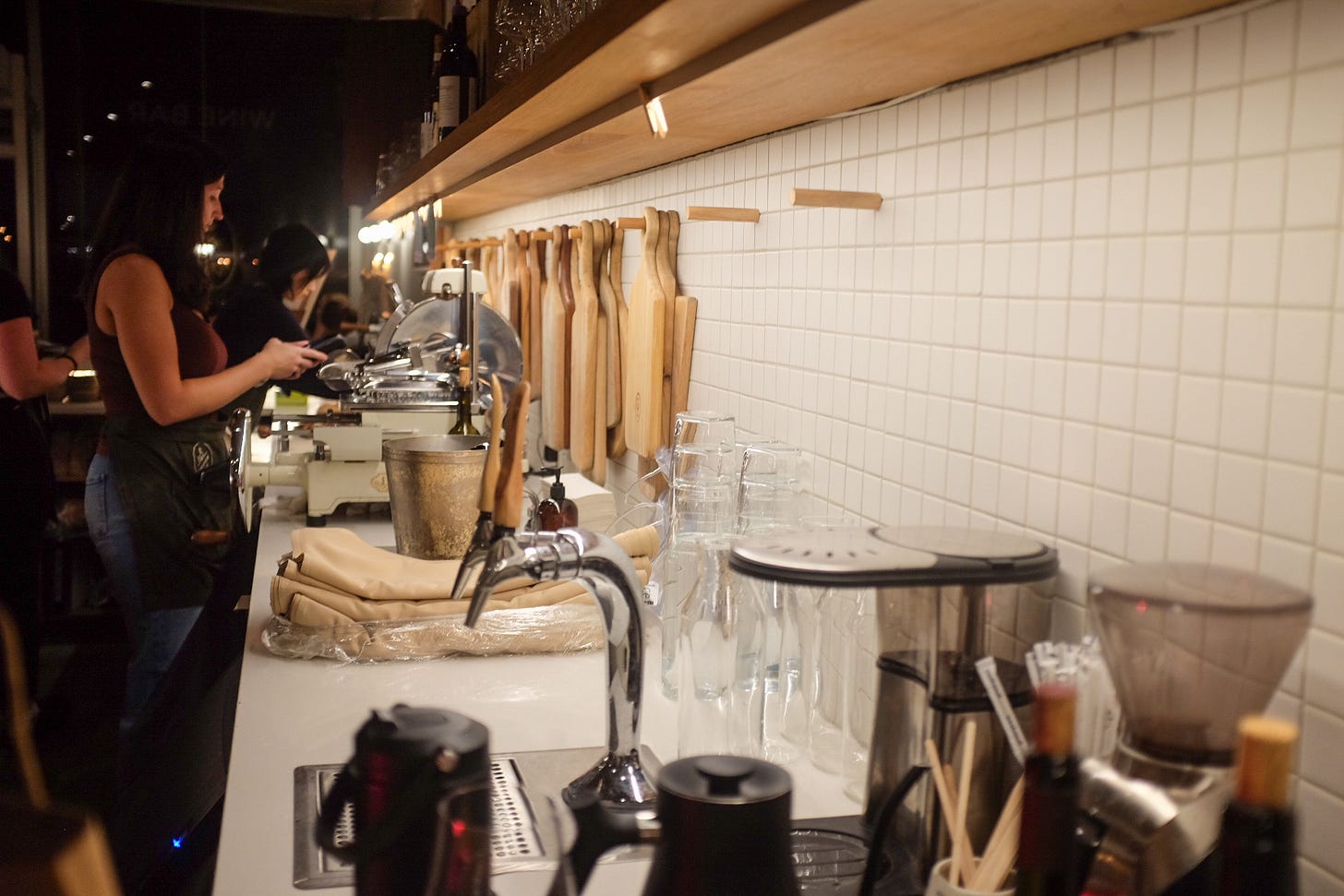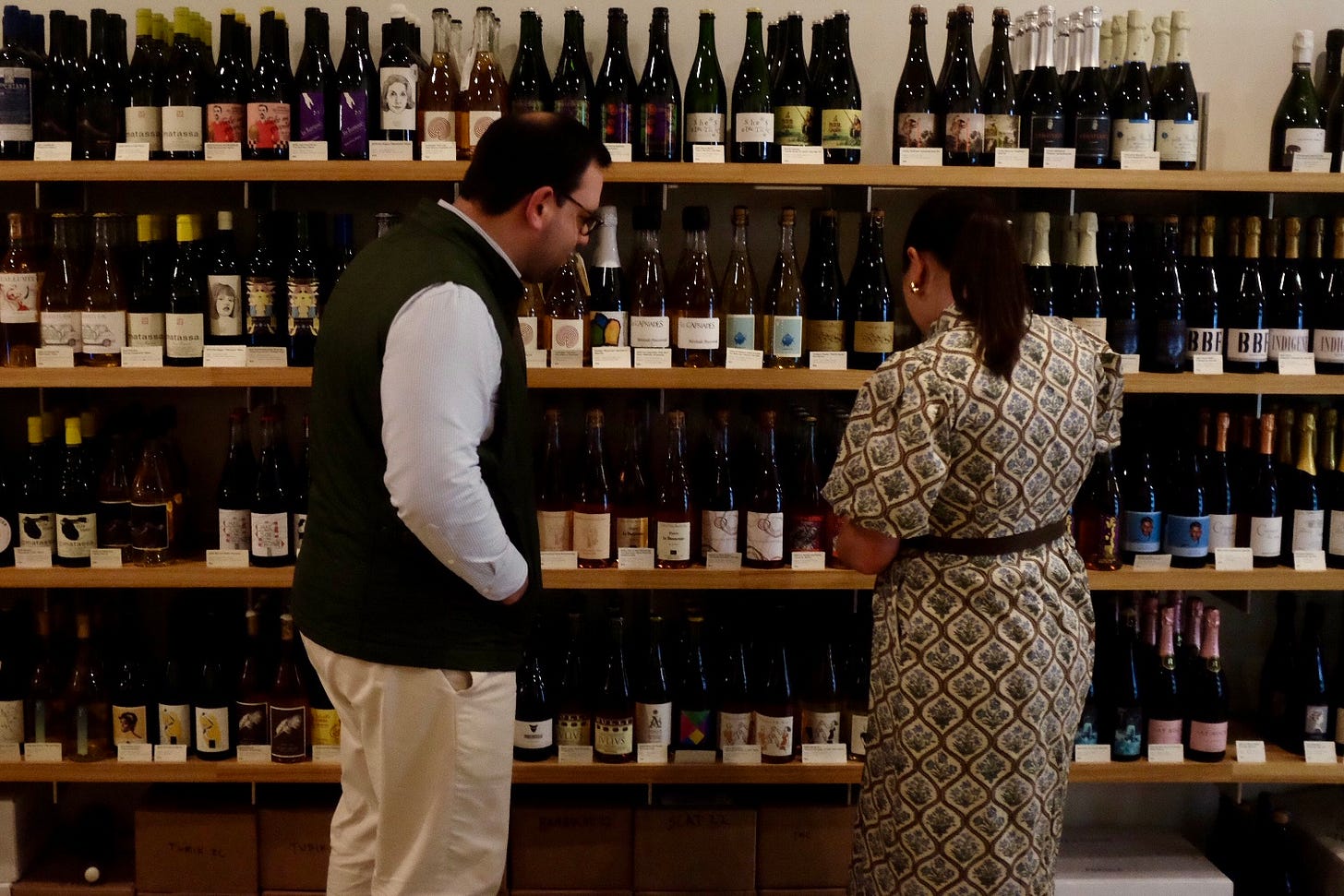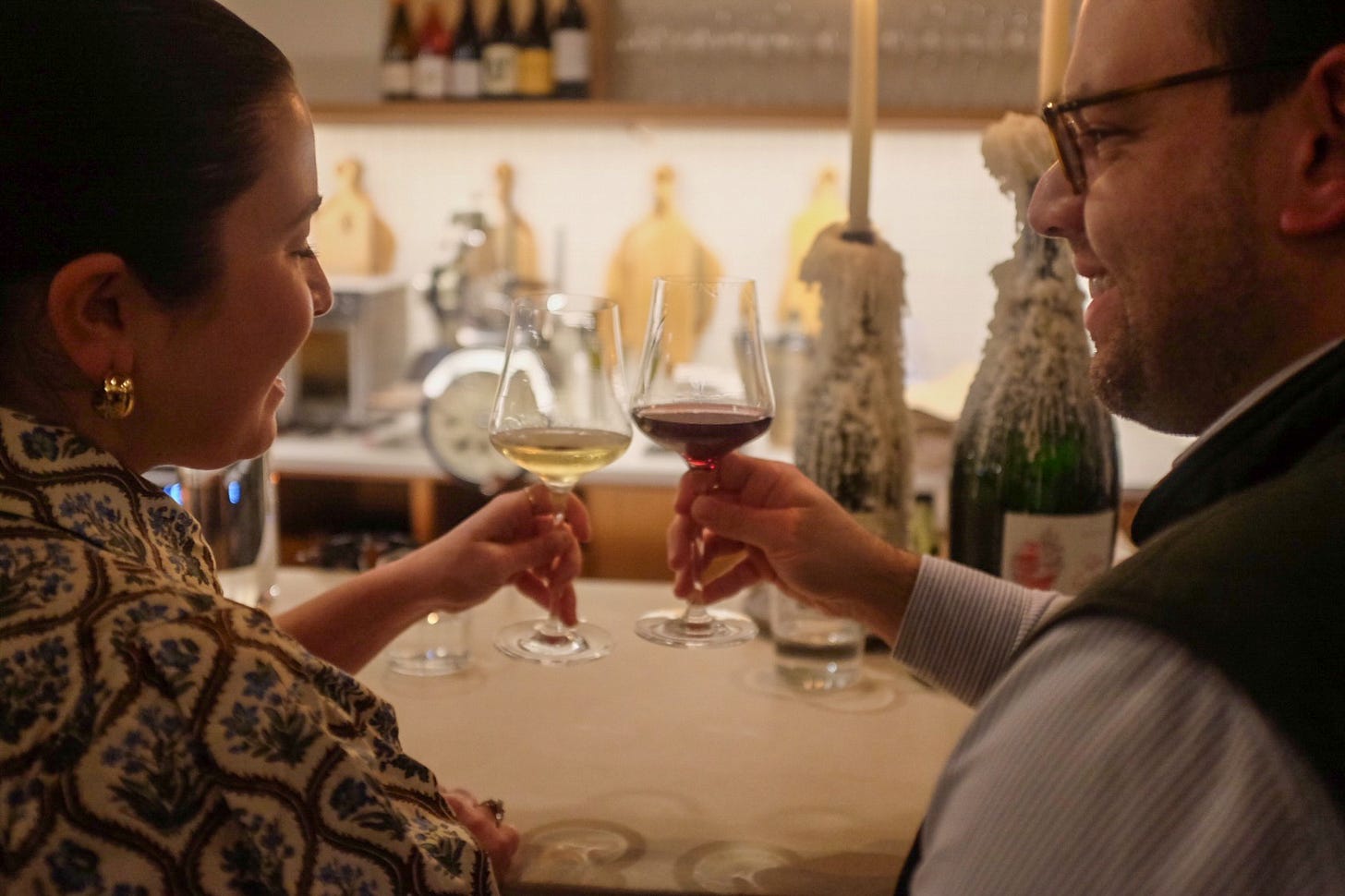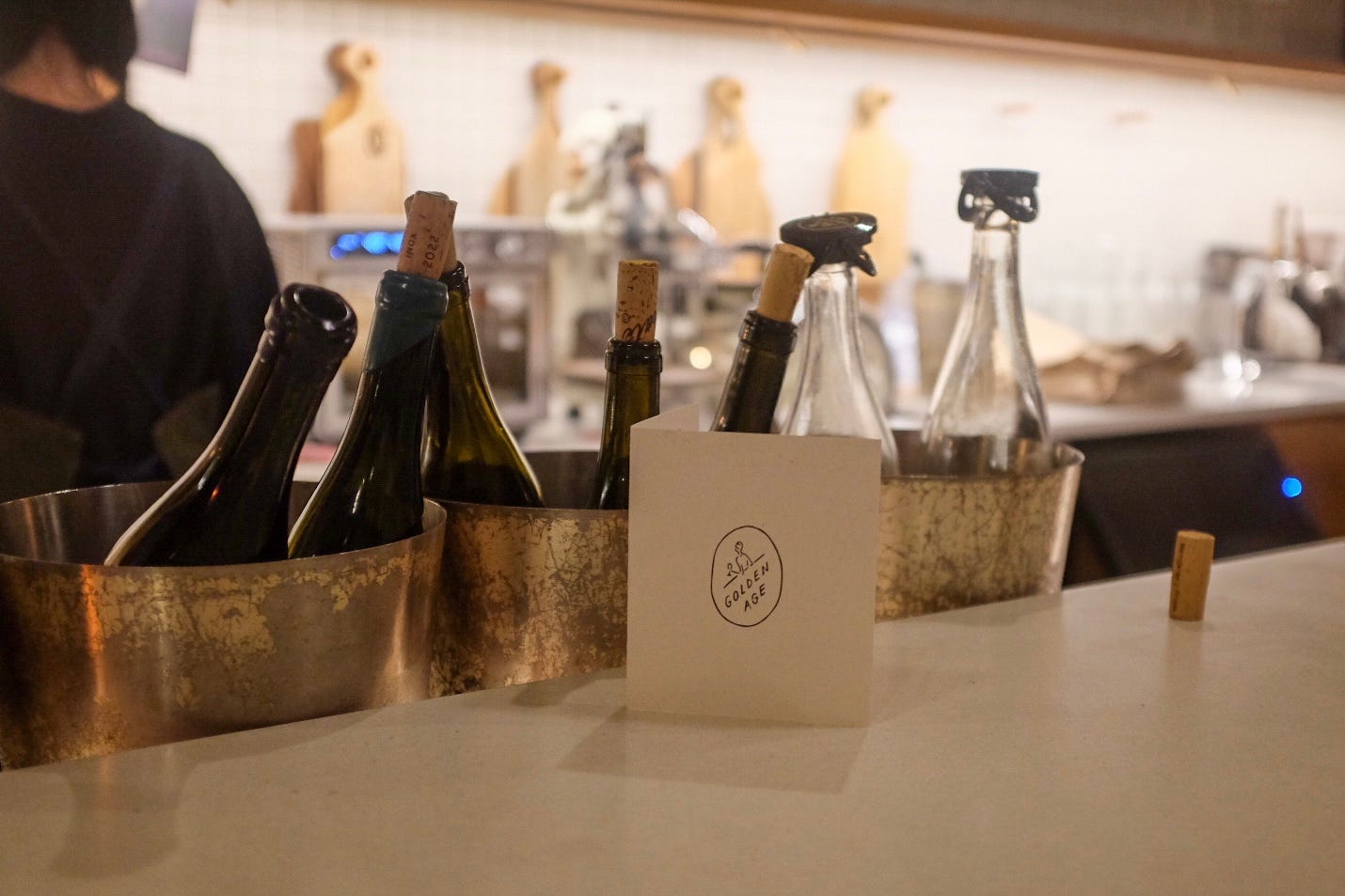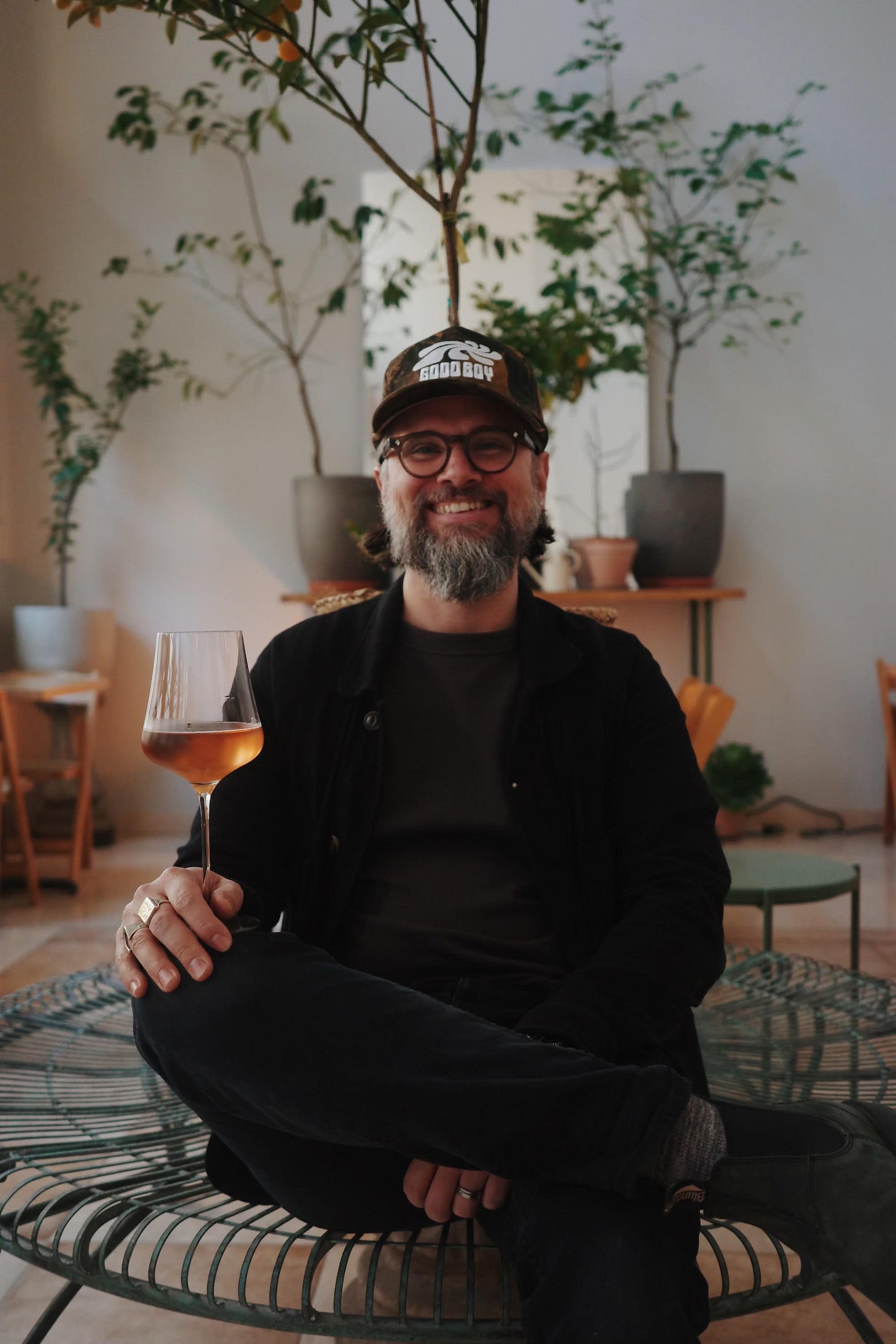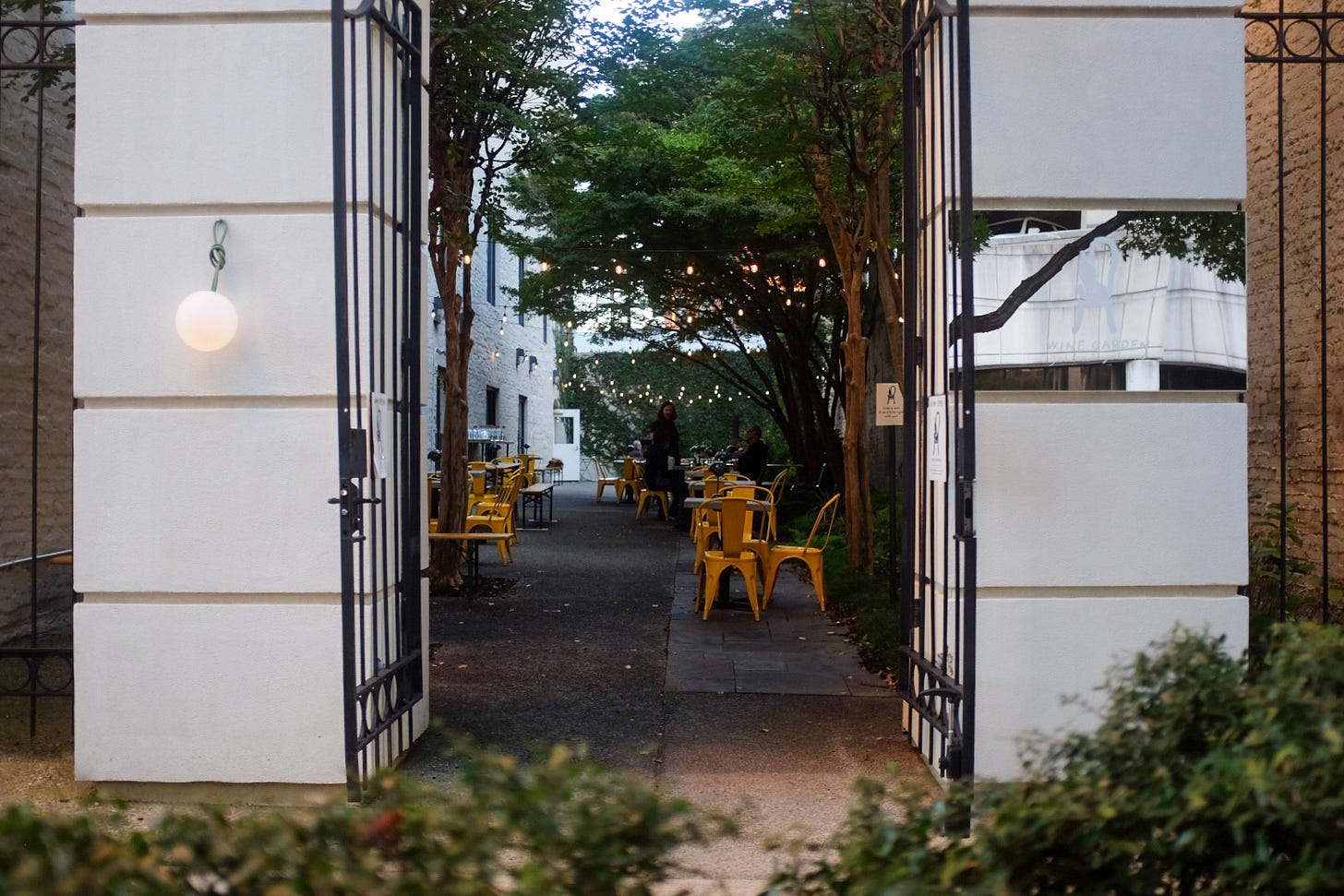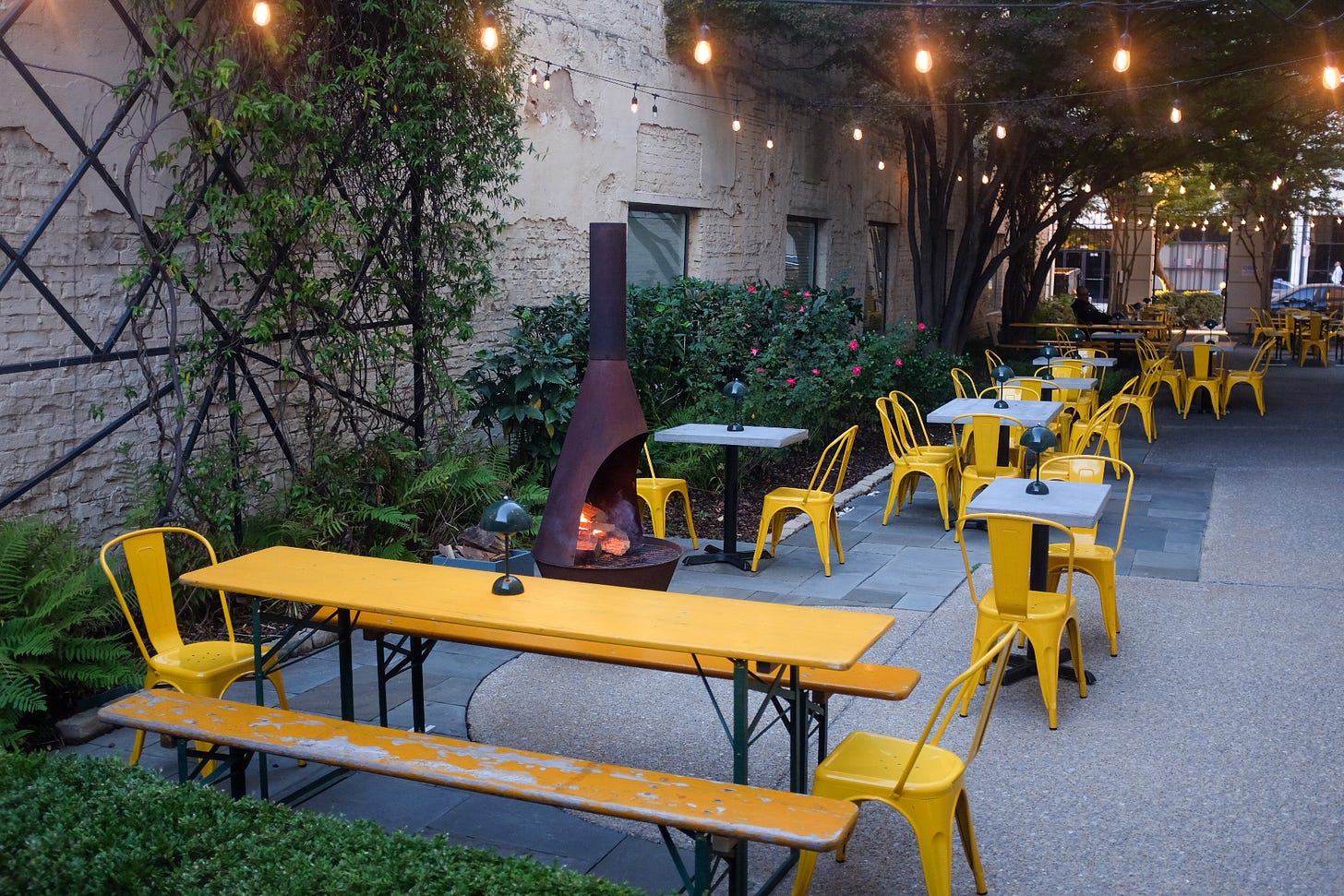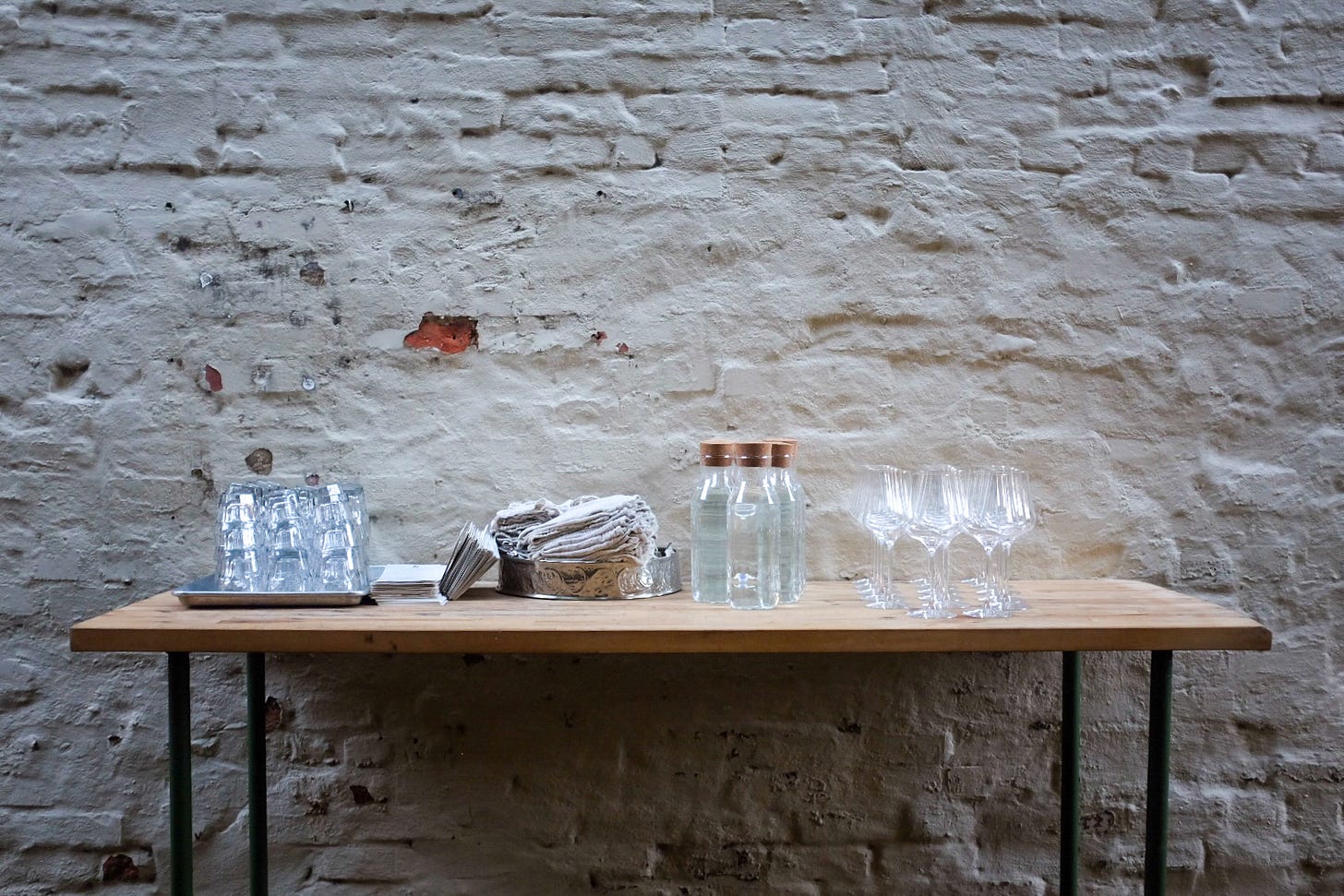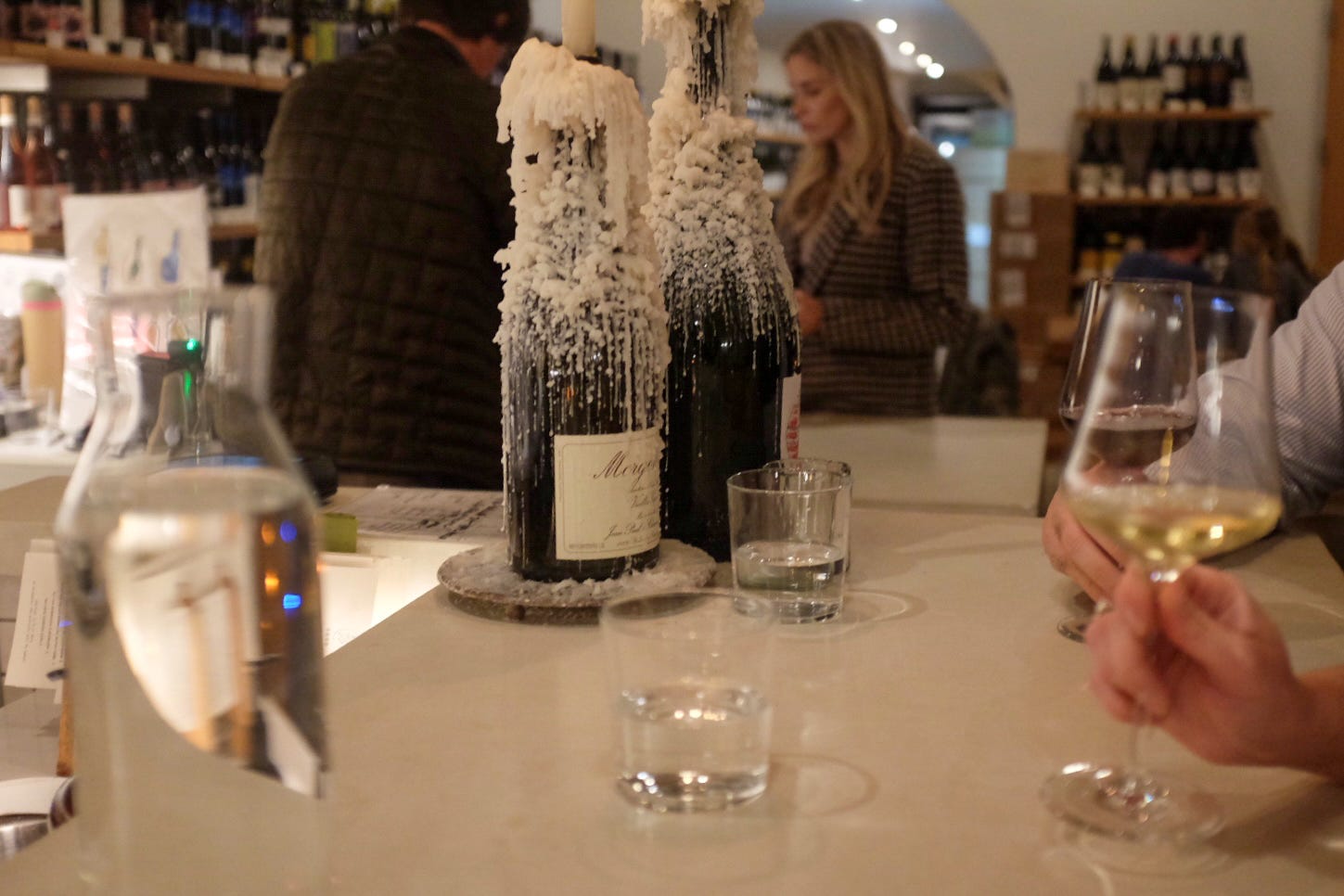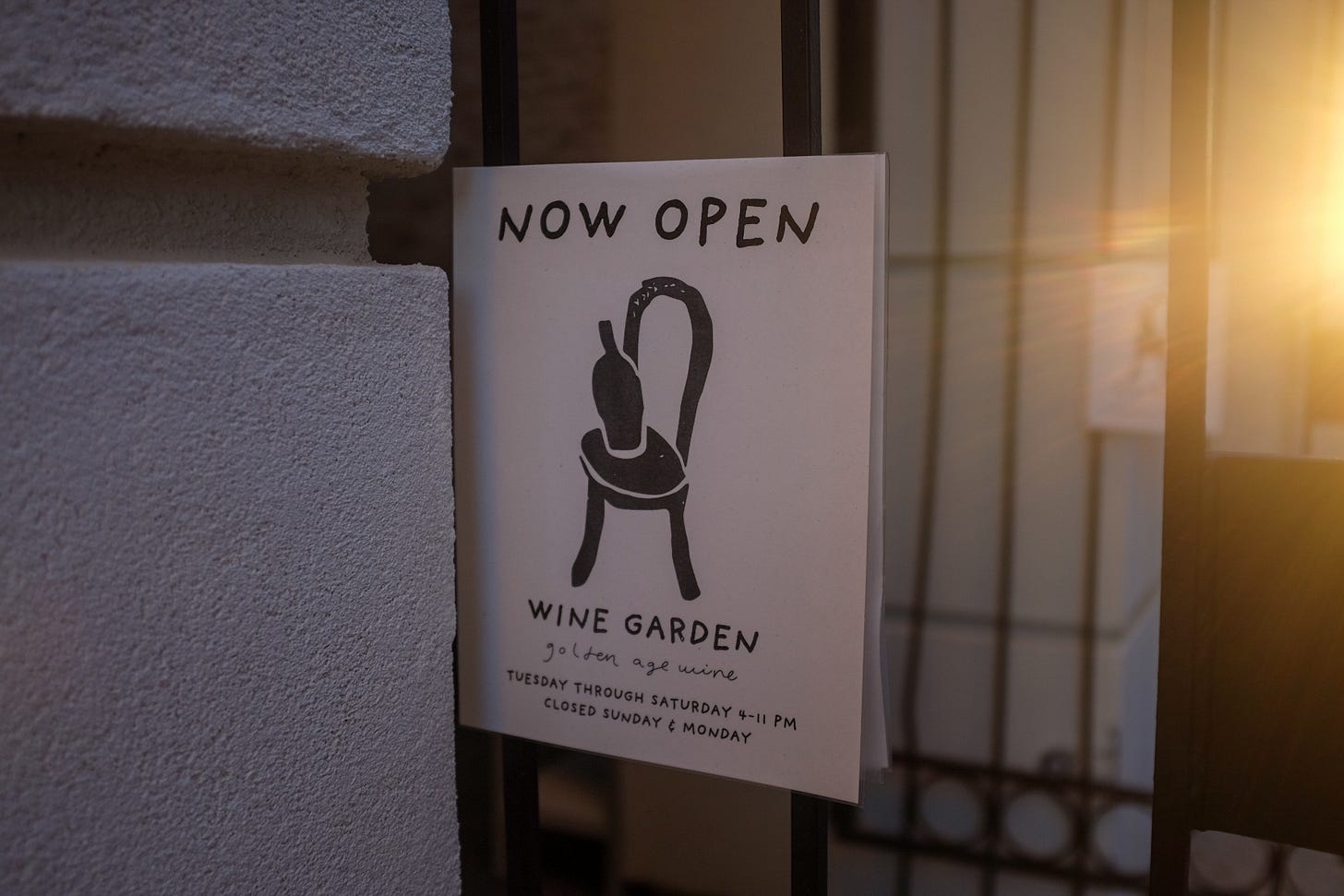I’ve often been enthralled with the days of old Hollywood. They called it the Golden Age. Actors and actresses that graced the silver screen were incomparable. We all know the names: Frank Sinatra, Humphrey Bogart, Marilyn Monroe, Cary Grant, Grace Kelly, James Dean, or my personal liking of Lauren Bacall and Ava Gardner, but the list goes on. This era represented class, elegance, beauty, grace, style, and above all, taste. There’s a special place in Birmingham, Alabama that also hopes to give you a taste of what they consider the golden era of wine, and that’s right now. It’s called Golden Age Wine. Now more than ever, there are more people able to do more than they ever have with wine. Varieties, regions, young, old, natural, and sometimes boxed, we have access to it all. Just as Hollywood connects us to stories of love, glitz, and glamour; Golden Age Wine seeks to connect you to your new favorite bottle, and the story of its making. I had the opportunity to speak with one of their founders, Brandon Loper, to share what they’re creating in both Mountain Brook and downtown.
The Place: Golden Age
1. What’s the story?
2. What kind of wine do you offer?
3. What’s the why?
4. What’s the vibe?
What’s the story of Golden Age?
Golden Age starts with my previous and in some ways still my current career as a filmmaker. Before opening Golden Age, my wife and I were living in San Francisco, where I was making movies, commercials, and documentaries. When I say movies, they’re not narrative features, but documentary films, and it got to where I was doing a lot of traveling, such as I got to visit Copenhagen, Tokyo, and all these great cities of the world and was into wine, but I was really into coffee. That was kind of my gateway drug into the culinary world, if you will. So while living in San Francisco, there was sort of the rise of specialty coffee, around something like 2006 or 2007, but that's when it was really becoming a thing. There was a place called Blue Bottle Coffee there, which is now huge. It's become a household name almost, but it was a small little cafe in an alleyway originally, and you'd go there and it felt like cool and not even secretive, but you felt “in the know,” you know?
So I started a blog called Beans and Grapes. I started out on that, and I was reviewing coffees and wines that I would get from Trader Joe's mostly. So it was just reviewing all those kinds of things, but my coffee obsession got me into roasting coffee at home. It was then, that I was like, “you know what, I think I'm gonna make a documentary about coffee and the specialty coffee movement.”
I had made a short film about a guy who put a piano on a bicycle and would ride around San Francisco playing the piano. Just very quirky, fun guy, and is called, “Unwieldy Beast.” That's sort of what he called this thing and “St. Frankenstein” was the name of his piano. But anyways, that film won a couple of film festivals, and that gave me the confidence to make my documentary about coffee. So I travel the world, Tokyo, Rwanda, Honduras, all around the U.S. and followed seed to cup. So from coffee being planted in Honduras to being harvested in Rwanda, to being enjoyed in a specialty cafe in Portland, if you will, and comparing that in Portland to Tokyo, that was kind of the angle I was going for. That did really well, in which we did a lot of our own screenings, but on the opening night of the film, it was in Seattle and it had two sold out shows. We went to a team dinner.
At that dinner, we went to a restaurant called the Corson Building. We had a dinner there and I had what I later found out was a natural wine, however, I didn't really know that terminology then. I just knew that this wine was different. So that wine was the thread that I kept pulling on to figure out what was different about it. That led me down the path to ultimately opening Golden Age. So as I was traveling around the world, and making commercials, I was like, “Oh, we got to try these wines.” I then found the terminology, that it was called a natural wine, and found out what some of the components were to that. So every city I went to, I'd try those wines and kind of brought along my filmmaking crew with me.
Our family went from two to three, then three to four in a small apartment in San Francisco and that’s when we decided to move back home to Birmingham, Alabama. So the day we decided that we're going to move, I called the ABC Board and I said, “Hey, What does it cost to get a license to do a wine bar and wine shop?” and they were just like, “Oh, it's just one price, $250.” It's a little bit more than that, but that's what they told me, when you factor in a few other things, but compare that to a million dollars to get a liquor license in San Francisco and a really long waiting list. I'd never worked in wine professionally, but I loved it, and I had a lot of experience drinking wine. So I got connected with a distributor here, Trent, and we connected over a long lunch at Chez Fonfon and hit it off. Even though that meeting was just a distributor- customer relationship, we knew we had a similar vision. Then after months of back and forth of trying to get the concept off the ground by myself, that’s when I ran into him again and said, “let’s do this.” That was the encouragement we both needed to jumpstart the project. So we finally opened in July of 2019.
The name comes from the golden age of Hollywood, which is something I was interested in as a filmmaker. With this natural wine and low intervention point of view that we have at the shop, I wanted a name that reflected that, but wasn't on the nose, yet was a name that was in the common culture that people had heard, and it gave them positive feelings. So that’s how we landed on Golden Age Wine, because we believe that we’re in the golden age of wine in terms of the access and the things going on in winemaking today.
What wines will people expect to find here and how do you curate them?
So we like to say that we have a low intervention wine shop and wine bar. That includes a large selection of natural wines. The term natural wine has become sort of a divisive terminology. Some people that have had flawed wines, that have been called natural, are sort of anti-natural wine now. We feel like there's a middle ground, and really it comes down to, “how’s the farming?” So everything in our shop is organic or biodynamicly farmed. What that is, is no pesticides in the vineyards. That’s the thing that we really like to hang our hat on, and in terms of the farming, or in addition to the farming, is use of native yeast fermentation. Everything in the shop is native yeast fermented to the best of our knowledge. With these, all the wines are using the yeast that's on the grapes or in the cellar to start the fermentation process. So they're not adding a chemical or a yeast to start that process. The final component, we look for, would be minimal to no sulfur. Sulfur is a preservative that often is necessary, but there are some naturally occurring sulfites in the winemaking process. Those sulfites usually come from the skins, like the tannins. It's harder to not add sulfites to white wines than it is to reds, just because of the process behind it, but we like to say low to no sulfites.
Really what it boils down to, is if you come to Golden Age, you're going to find a small family-run farm of people that are growing grapes and making wine as their livelihood. We find that we like to tell those winemaker’s stories and connect our customers to those people and places across the world.
What’s the purpose behind Golden Age?
The purpose is, we wanted to have a wine bar and wine shop so you could try wines. We offer a flight of wines at anytime that we're open. You can try three, two ounce pours. You can try that or you can get a glass. Then hopefully if you like it, you can take a bottle home for dinner or take a bottle to a friend's house. You are empowered with that information of A, you tasted it. B, hopefully the staff has educated you a tidbit about that wine. Then you can go and kind of be the hero of your own story when you go to your dinner party or you go to dinner. You can bring a bottle of wine to your partner and say something like, “Oh, this one's really cool. This woman who's a third generation farmer took it over from her parents and now she's making wine. Now also her kids helped her stomp these grapes.” Then hopefully, that creates a better experience for you and whoever you're drinking it with. It’s really to make it more enjoyable.
How would you describe the atmosphere?
I think the vibe here is what my wife calls “warm minimalism” That's the atmosphere and style. We like to say that we’re going to introduce you to a new genre of music or a new song or new artist, while we introduce you to a new wine, and hopefully you meet new people while you’re here too.
The Person: Brandon Loper
1. Who is Brandon?
2. Why wine?
3. What sort of stories draw you in?
(Photo: Harper Schnell)
Who is Brandon?
I’m a husband and father of two girls. I grew up in Decatur, Alabama. Was an only child, went to college at UNA, Florence. Really got into music there and was playing in a band. I felt that we were gonna make it. We were playing at the Hard Rock Cafe in Memphis and we had a lot of great shows. Then when college was over and the band broke up, everyone went their separate ways. I however, really got into music in college and I was studying studio engineering. Then I pivoted to radio, television, and film in college. That's how I got into filmmaking. I then moved to the Bay Area, worked in advertising and fell in love with directing and making commercials and documentaries. I think music is a big part of what makes us tick around here at Golden Age, but also myself personally. I'm really into refinishing speakers. We just opened a new location in downtown Birmingham called the Golden Age Wine Garden. That's kinda of our take on an outdoor listening room, and hi-fi type situation. I rebuilt some speakers there, that are old, like Altec Lansing, voice of the theater speakers, that are really made for projecting in a movie theater. So it works well in our garden style outdoor space. I’m very into Japanese culture and have been able to travel there a bunch for my filmmaking and commercial career. I'm still just a coffee, wine, and music geek. That can kind of explain me in a nutshell.
Why is wine important to you?
It's like how I’m always wanting to try different coffees. For an example, a few days ago, I was running to our other location and I stopped by my local coffee shop that I go to the most and got myself a coffee. Then I was like, “you know what? This new place just opened. I'm gonna go get a coffee from them too. And I'll compare them.” I'm not gonna drink both of them, but I just wanna taste them. I want to see what they are pouring. So I'm always sort of looking for that kind of culinary experience. I find that you can just drink more things than you can eat.
I can only have a couple of meal's a day, but I can have a few cups of coffee a day and a couple glasses of wine. So with wine, I always really enjoy seeing the differences, because these wines are living, active, and alive. They're always changing. You can have a bottle of wine today, and in a few months, it may taste different. So I like trying things where they are, and in the current moment. Every year it's different, it's a different vintage, and sometimes maybe they changed something with the winemaking processes. I really enjoy with wine, being able to just dive into the differences. That’s what I like about coffee too. It's that these are coffees that are unique. The French term is terroir, but they're place-based and they're different with every vintage.
As a filmmaker, what sort of stories are you drawn to most?
I think that it’s stories that can connect people from really far away. I'm sort of drawn to things such as with my coffee film. It's something that's so personal to people, coffee. They typically have a time of day that they do this ritual, they do it everyday and they probably have a particular way in which they like their coffee. It can be a very personalized thing. It’s like when I know the woman that made my mug. When I drink out of my mug, I can think about her and about positive thoughts surrounding the mug. I can think about where this coffee came from, and I can think about that place and the farmer. Now maybe I have more of a connection than other people because I've been to those places, but with my films and the stories that I tell, I'd like for other people to experience those details.
So I think ultimately, you could boil it down to trying to encapsulate experiences that I have personally, and sharing those with other people. With wine, it's doing it on a case by case basis, one bottle at a time, as we're telling those stories to people. So really just anything that brings a personal connection from one person to the next.
Recommendations:
1. Wines to try
2. What’re you currently listening to?
Recommended wines?
There's so many honestly, it's very hard, but we're getting into Beaujolais season. There's a producer that I really love named Cyrille Vuillod and his label is called LA DERNIÈRE GOUTTE. That's the name of his wine project and that's one that we work with a lot here. We have a lot of their different wines and I think they're all really interesting and what he does, is he’s using similar fruit and making it in a lot of different winemaking vessels. So with that, you can really try some very controlled differences in the wine, which is really fun.
What’re you listening to right now?
There's a group called Kokoroko, that’s really cool. I love their style of music. It's like a blend of world music with some jazz and there's a horn section and good bass lines and things like that.
Jazz is a big category that I like listening to as well. There's a great show that you could listen to on our local jazz station here, 91.1 Jazz Hall Radio. They just redid the jazz hall of fame here and they're getting some new and exciting shows on the station, but it's called The Sure Shot, with Suaze and DJ Radu. It's a great jazz show with hip hop influences. I think people should check that out for sure.
So drop by, pour a glass, and reminisce on stories of love.
